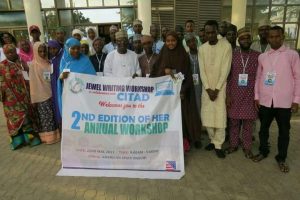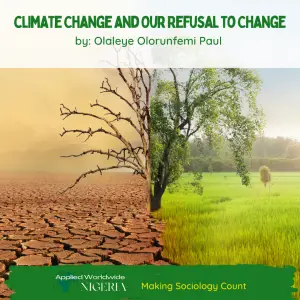“You don’t speak your language? That is very bad.”
I’ve heard this statement countless times, and it has caused me to reflect on my identity. Each instance brought a small sense of guilt and made me question if I was missing something.
But recently, I decided to look deeper, to think about why this keeps happening. I realized something important: none of it was my fault. The loss of traditional practices, the rise of modern life, and the complex changes in our society have all played their parts. This is not just my story; it’s a story shared by many young Nigerians. We are caught between preserving our rich heritage and navigating the demands of a global world.
In this article, I will explore the elders’ criticisms of the decline in tradition among the youth. Shedding light on both sides of this cultural divide.
The Significance of Tradition
Traditions play a pivotal role in maintaining Nigeria’s cultural identity. They serve as a link to the past, ensuring that the wisdom, values, and customs of ancestors are not lost. These traditions foster social cohesion, creating a sense of belonging and community among individuals.
Despite the pervasive influence of Westernization, Nigerians have managed to retain many of their traditional practices. This resilience is evident in the way both major and minor ethnic groups go to great lengths to preserve traditional monuments, folklore, and ceremonies. These efforts underscore a collective determination to uphold cultural heritage.

Even Nigerians in the diaspora make significant efforts to remember and teach younger generations about their culture. Diaspora communities frequently organize cultural festivals, language classes, and traditional dance and music events to keep their heritage alive. This commitment to cultural preservation is a testament to the deep-rooted importance of tradition in defining what it means to be Nigerian.
In essence, these traditions are not merely remnants of the past but are actively kept alive and vibrant. They are the threads that weave the rich tapestry of Nigerian identity, making it distinct and enduring.
Elders’ Perspective
Elders in Nigerian communities express deep concern over the perceived decline of traditional practices. These traditions are seen as essential for maintaining cultural heritage, offering continuity and a sense of identity. As these traditions wane, there is a fear that the cultural fabric binding communities together will weaken.
There is a growing sentiment that the youth’s increasing desire to adopt Western lifestyles is leading to a devaluation of Nigerian traditions. Often, youth label traditional practices as primitive or diabolical. Ancient rituals and ceremonies are dismissed as outdated or superstitious, with a preference for the modernity and convenience of Western customs. This shift in perspective is seen as causing a significant rift between generations and a potential loss of cultural identity.
Acknowledging that some traditional practices are outdated and need reform, elders emphasize that this should not lead to the wholesale rejection of all traditions. Harmful or irrelevant practices should evolve, but core values and meaningful customs must be preserved. Youth are urged to discern between practices that need change and those foundational to cultural identity.
Elders advocate for a balanced approach, where necessary changes are made to unjust or outdated traditions, but the essence of Nigerian cultural heritage remains respected and intact. Preserving what is good and meaningful in traditional practices is crucial for maintaining a strong cultural identity for future generations.
Youths’ Perspective
Many young Nigerians recall that speaking any language apart from English warranted punishment in schools. This policy, aimed at promoting unity and communication, inadvertently contributed to the erosion of native languages and cultural practices. For instance, students would be fined or given extra chores for speaking their mother tongues, instilling a sense of detachment from their cultural roots.
The situation is even more complex for those born and raised in parts of Nigeria where the dominant language differs from their parent’s native tongue. In these households, parents might speak one language, the surrounding community another, while English serves as the common ground. Young people are often advised to speak English to ensure better educational and career opportunities, further distancing them from their cultural heritage.
Many youths feel a sense of frustration and abandonment when elders and parents criticize their lack of cultural knowledge. There is a widespread sentiment that the older generation does not put in enough effort to teach traditional practices and languages. This perceived neglect leaves young people feeling unfairly blamed for something that was not prioritized in their upbringing.
The pressure to keep up with the rest of the world in terms of career and economic success often outweighs the pressure to learn and maintain numerous traditions. The globalized world demands proficiency in English and other universally recognized skills, leaving little room for cultural practices that might seem less immediately beneficial. For many young Nigerians, the focus is on acquiring the skills and knowledge necessary to thrive in a competitive, modern economy.
In essence, while there is a desire among the youth to connect with their cultural roots, the circumstances of their upbringing, combined with modern pressures, create significant barriers. They seek understanding and support from elders in finding a balance between preserving cultural heritage and navigating the demands of contemporary life.
Efforts to Keep Tradition Alive
Despite the challenges, many young people are genuinely interested in their traditions and make significant efforts to connect with their cultural heritage. They participate in cultural events, learn traditional crafts, and seek out elders to gain knowledge about their history and customs. This passion for preserving their culture demonstrates a deep respect and desire to maintain a link to their roots.
To ensure the preservation of cultural heritage, it is essential to foster dialogue between elders and youth. Elders are encouraged to share their knowledge and actively involve young people in cultural practices. At the same time, youth should seek to learn and appreciate their heritage, finding ways to integrate it into their modern lives. This mutual effort can help make traditional practices more relevant in contemporary society.
Bridging the generational gap and preserving cultural traditions is not just about honoring the past but also about enriching the future. Without tradition, we risk losing our way in the world. Our traditions are the roots that anchor us!






